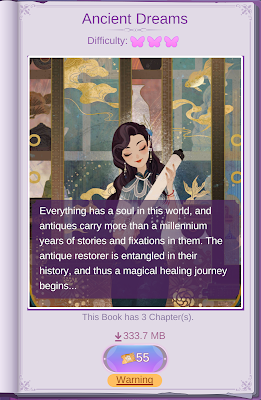Review: Silent Mermaid
When I first wrote Of Land and Sea: The Untold Story of The Little Mermaid in 2009, I never would have expected to be reading so many new adaptations of "The Little Mermaid" years later. As much as I enjoyed The Little Selkie by K.M. Shea and A Little Mermaid by Aya Ling, I must eventually come to terms with the fact that my vision won't always coalesce with every other author's vision of my favorite fairy tale. Sadly, this turned out to be the case for Silent Mermaid by Brittany Fichter. It was significantly longer than the other adaptations I've read, but that was to be expected considering how long The Autumn Fairy, the other book I read by her, was. However, I regret to admit that I enjoyed The Autumn Fairy significantly more than this convoluted retelling of "The Little Mermaid."
Silent Mermaid puts its own spin on "The Little Mermaid" tale by telling the story of a mermaid who was born without a voice as opposed to one who gave it away of her own free will. Arianna wants nothing more than to be like the rest of her family and sing magical songs with the power to help, heal, and protect other merfolk. Instead, she was born mute like the heroine from The Shape of Water and is destined to stick out from all of the other mermaids with her tan skin and blonde hair, deformities caused by her early exposure to sunlight. When her family is attacked by pirates, she has no choice but to escape to the surface world where she miraculously gains legs and is discovered by a prince named Michael. She is then reluctantly given a suite in the castle and hideous clothes by a queen who openly dislikes her.
The lack of romance and sacrifice in this book sets it apart from other adaptions of "The Little Mermaid," but not in a good way. Arianna becomes human out of necessity, not desire, and she obtains her legs by praying to the Maker when she is placed in an impossible situation. It is not very clear how difficult it is for merpeople to obtain legs in this world or even why the ability exists at all. Her relationship with Prince Michael is rocky at the beginning, but they eventually warm up to each other. It doesn't help that his mother detests her. Though Michael feels somewhat indebted to Arianna for saving his nieces several years before, he has a rather funny way of showing it. His two nieces are rambunctious and fun, and Arianna winds up being their caretaker just like Alyssa in Melanie Cellier's The Princess Companion. Arianna seems to have a stronger relationship with the two little girls than she does with the prince, which is unfortunate considering how powerful the love story between Katy and Michael was in Brittany's other book, The Autumn Fairy.
The plot twist of making Arianna's jealous aunt want to take over the merpeople's throne has already been done to death in the mermaid Barbie movies and the Filipino drama Dysebel. Ursula was even going to be Ariel's aunt in an original cut of Disney's The Little Mermaid. Renata does not reveal herself as the villain until late in the book, which should allow more time to develop the romantic subplot between Arianna and Michael, but instead, the story just drags along like gentle waves crashing along the shore. Renata, Arianna's evil aunt, obtains her power from some sort of mysterious underwater drug that's similar to Merillia from the Barbie in a Mermaid Tale movies. For such a long book, few of the magical elements are actually explained, such as where Arianna's legs come from, how she obtains her voice, and what sort of properties are possessed by the drug her aunt uses to gain her powers.
I really wanted to enjoy this book, but it lacked something precious that rests within the heart of all "Little Mermaid" tales. Arianna doesn't seem to have the passion or drive to go after what she wants. She is just an unfortunate mermaid placed under unfortunate circumstances with a destiny that had been predetermined for her before she was born. The other thing I found difficult to enjoy is that the story takes place in a very dark world. Many merfolk were brutally murdered in the opening chapters in the war between the humans and the mermaids. It made the story seem all too real to create the whimsical escape that I enjoy from stories about mermaid princesses. The hatred between the two races seemed to know no bounds. It was Arianna's duty, not her choice, to mend it thanks to a mysterious prophecy about her. Something about that made her feel like a pawn in her own story, far from the rebellious and passionate character that Hans Christian Andersen created hundreds of years ago.












Comments